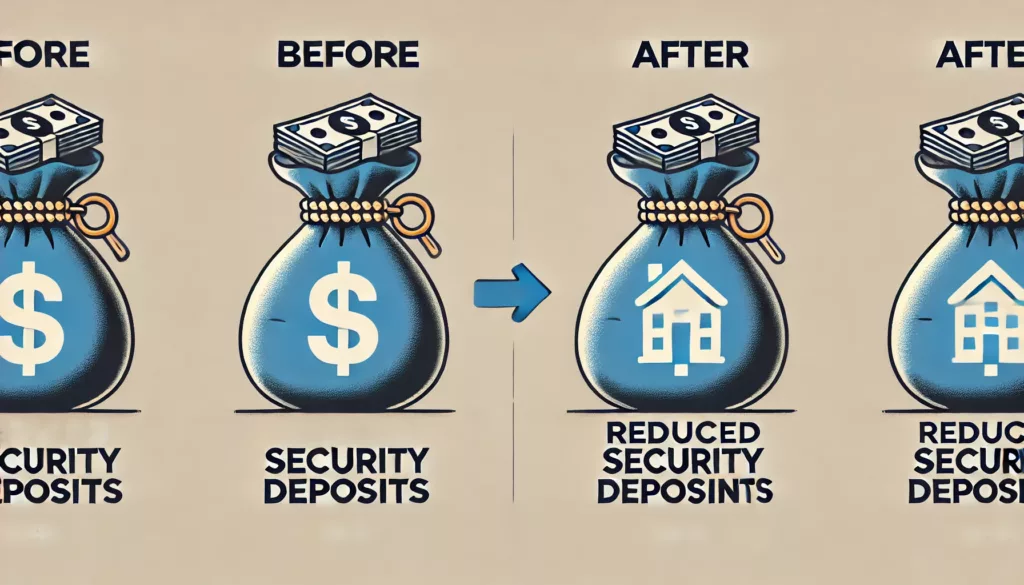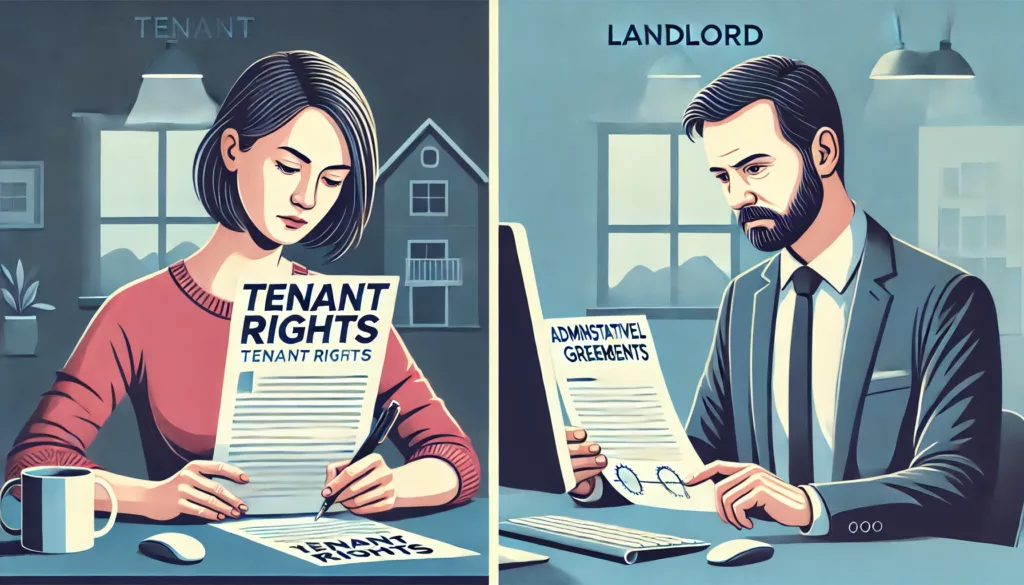
New Rental Rules in California: Understanding the 2024 Security Deposit Cap
Introduction

Starting July 1, 2024, California will enact new regulations that significantly alter the terms under which landlords can request security deposits. This change is part of a broader effort by the state to make housing more affordable and accessible in light of the soaring rental prices. This article will explore the specifics of these changes, why they are necessary, and how they will affect both tenants and landlords.
Starting July 1st Landlords Cannot Ask The Tenant For Three Times The Rent Anymore

What’s Changing?
The new legislation caps the amount landlords can charge for security deposits to one month’s rent for unfurnished units and two months’ rent for furnished ones. This is a significant reduction from the previous allowance of up to three times the monthly rent, which often made initial move-in costs prohibitively expensive for many renters.

Why the Change?
The adjustment comes in response to the high cost of living and renting in California, which has been a barrier to entry for many potential renters. By lowering the cost to secure a rental, the state hopes to make housing more accessible to a broader range of people.

Detailed Impact on Tenants
- Reduced Move-In Costs: The primary benefit for tenants is the reduction in upfront costs required to secure a rental. This change makes it financially easier for people to move homes, whether for personal reasons or job-related relocations.
- Increased Housing Access: By lowering the financial barriers to entry, more individuals and families can afford to move into rental housing. This is particularly beneficial for those with limited savings.
- Empowerment Through Knowledge: Understanding these new rights can help tenants advocate for themselves in rental agreements, ensuring they are not overcharged.

Detailed Impact on Landlords
- Financial Planning Adjustments: Landlords may need to revise their financial strategies to account for the decrease in funds collected at the start of tenancies.
- Enhanced Screening Procedures: With less security deposit to cover potential damages, landlords might tighten their screening processes to ensure they select tenants who are less likely to cause damage.
- Potential Legal Adjustments: Landlords will need to be vigilant about complying with this new law to avoid legal repercussions, which might involve updating lease agreements and tenant communication methods.

Preparing for the Change
For Tenants:
- Document Everything: When moving in or out, tenants should document the condition of the property to ensure they are not wrongfully charged for pre-existing damages.
- Legal Awareness: Tenants should familiarize themselves with the specifics of the new law to ensure they are not being asked to pay more than what is legally permissible.

For Landlords:
- Lease Agreement Updates: It’s crucial for landlords to revise their lease agreements to reflect these new rules.
- Educate Property Managers: Landlords who employ property managers should ensure their staff is well-informed about the changes to correctly implement them.

Economic and Social Implications
This legislative change is expected to have broad economic and social implications:
- Economic Mobility: By reducing the initial financial barrier to renting, more people may move for employment opportunities, enhancing economic mobility and potentially stimulating local economies.
- Social Stability: Easier access to rental properties might lead to greater residential stability, which can improve community cohesion and social stability.

Case Studies and Predictions
- Case Study Example: Consider a scenario where a single parent was previously unable to afford the move-in costs for a safer neighborhood due to high security deposits. With the new cap, they can now afford the deposit, enhancing their family’s quality of life and safety.
- Predictive Analysis: Economists predict that while the rental market may see a short-term dip in deposit revenues for landlords, the long-term effect should be a more dynamic and accessible market.

Conclusion
The 2024 security deposit cap in California marks a significant shift towards more equitable housing practices. This change is expected to lower the hurdles for renting, making it possible for more people to find homes within their budgets. Landlords will need to adjust, but the overall health of the housing market should benefit from these inclusive measures.


